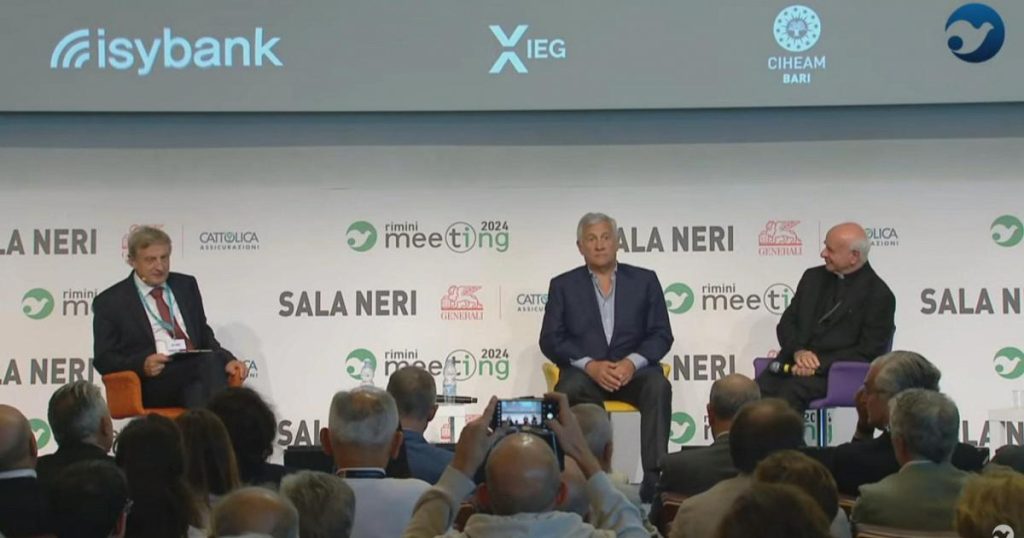The panel discussion titled “Paths of Peace” at the Rimini Meeting featured Foreign Minister Antonio Tajani and President of the Pontifical Academy for Life, Monsignor Vincenzo Paglia, moderated by President Bernhard Scholz. Tajani expressed support for peace talks in the midst of crises in the Middle East and Ukraine, emphasizing the need for a peaceful resolution in Israel and Gaza. He highlighted efforts by the United States and European countries to push for peace, despite challenges with Hamas and Egyptian troops near the border.
Tajani addressed the issue of Ius Scholae, emphasizing the importance of looking forward and expressing opinions even on topics outside the government’s agenda. He stressed the importance of maintaining loyalty while discussing different viewpoints within the coalition. Tajani also emphasized the significance of identity, culture, and European values, advocating for a broader perspective that includes being Italian, European, and patriotic based on personal beliefs rather than physical characteristics.
Tajani reaffirmed Forza Italia’s commitment to the center-right coalition and its efforts to expand its voter base beyond traditional boundaries. He emphasized the party’s focus on attracting voters between different political ideologies as a strategy for growth. Paglia praised the Mattei Plan in Africa as a powerful initiative for peace and collaboration, suggesting a stronger partnership between the Church and the Italian government in promoting peace efforts on the continent.
Tajani echoed the importance of the Mattei Plan and its potential to leverage resources for exponential growth in Africa. He called for Italy to play a significant role in supporting African development and cautioned against myths surrounding figures like Putin as alternatives to colonialism. Tajani highlighted key issues in Africa such as climate change, healthcare, vaccination campaigns, modern agriculture, education, and the involvement of universities in shaping a prosperous future for the continent.
Shifting focus to economic matters, Tajani urged the European Central Bank to lower interest rates to reduce public debt and stimulate access to credit for businesses and families. He underscored the urgent need for bolder steps by the ECB, especially in light of potential risks of recession in Germany. The discussion at the Rimini Meeting touched on a range of topics, from peacebuilding efforts in conflict zones to economic strategies for growth and stability, emphasizing the importance of collaboration, innovation, and foresight in addressing global challenges.















